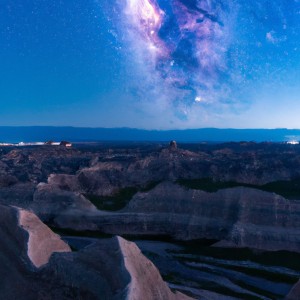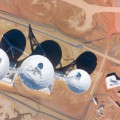Where Do All the Rocks in the Universe Come From?
In the vast universe, rocks are one of the most common things we encounter. From the lunar surface to asteroids hurtling through space, rocks seem to be everywhere. But have you ever wondered where all these rocks come from? In this article, we'll take a closer look at the origins of rocks and how they have contributed to our understanding of the universe.

Let's start with our closest celestial neighbor – the moon. The moon is covered in rocks and craters, and it's a perfect case study for understanding the universe's history. The rocks on the moon come from a variety of sources – from volcanic eruptions to impacts by asteroids and comets. These rocks have helped scientists better understand the composition of the moon, its age, and its formation. By studying the rocks on the moon, we have learned that it has a similar composition to Earth's mantle, supporting the theory that the moon was formed after a giant impact between Earth and a Mars-sized planet.
Moving further out in the solar system, asteroids and comets are heavily composed of rocks. Some asteroids are made entirely of rock while others have a metal core. Comets are a mix of rock, ice, and dust. These celestial bodies formed during the early stages of the solar system's formation and have remained relatively unchanged since then. By studying the composition of these rocks, we can better understand the origins of the solar system and how it formed.
Outside of our own solar system, rocks are still abundant. In fact, many exoplanets have been discovered that are made entirely of rock. These planets, known as "super-Earths," have a solid outer layer with a potential ocean of magma beneath. They are called super-Earths because they are larger than Earth, but smaller than ice giants like Neptune and Uranus. Studying these planets and their geology has helped scientists better understand the conditions necessary for planets to form and how they evolve over time.
In conclusion, rocks are a fundamental part of the universe, and their origins can tell us a lot about the history and formation of celestial bodies. From the moon to asteroids, comets, and exoplanets, rocks can provide valuable insights into our understanding of the universe. As we continue to study these rocks and the forces that shaped them, we will gain a better understanding of the vast and complex universe we call home.













评论